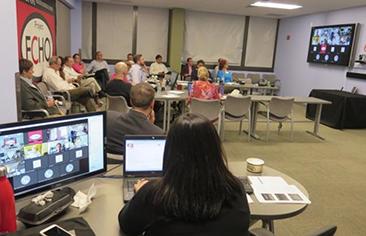Citation:
Abstract:
This case takes place in the United States (US) and traces the inception and growth of Project Extension for Community Healthcare Outcomes (Project ECHO)—a web-based "guided practice" model for primary care providers—from 2003 to 2016. After providing background on the US health system, including medical education, health care financing, and the supply and distribution of primary care and specialist providers, the case explores what motivated Project ECHO founder and liver specialist Sanjeev Arora, MD to train primary care providers in rural New Mexico in hepatitis C treatment and management. It describes early replication of the ECHO model in the US and across medical conditions and what the Project ECHO model entailed—including leveraging technology to expand access to specialty resources, best practices, case-based learning, and outcome monitoring, as well as good will among participants. A professional communications campaign, ongoing research, and persistence supported Project ECHO’s growth. The case displays three dimensions of Project ECHO’s early work: creating a new mode to redistribute the expertise of specialists to primary care practitioners, scaling this new care delivery model and measuring its impact, and identifying sustainable funding sources. The case concludes with the US Congress passing the ECHO Act to promote research on the model and Arora contemplating what else he might need to continue to scale to reach his goal of touching 1 billion lives.
Teaching Note available through Harvard Business Publishing.


Learning Objectives: To understand what is needed to design a service model; the potential for redistribution of expertise among practitioners to enhance value; the role of operational effectiveness in enabling scale up; and the importance of measuring impact for stakeholders.
Keywords: Public health, health care delivery, scale-up, resource-limited settings, human resource, information technology, primary care, information management, data collection, mentorship